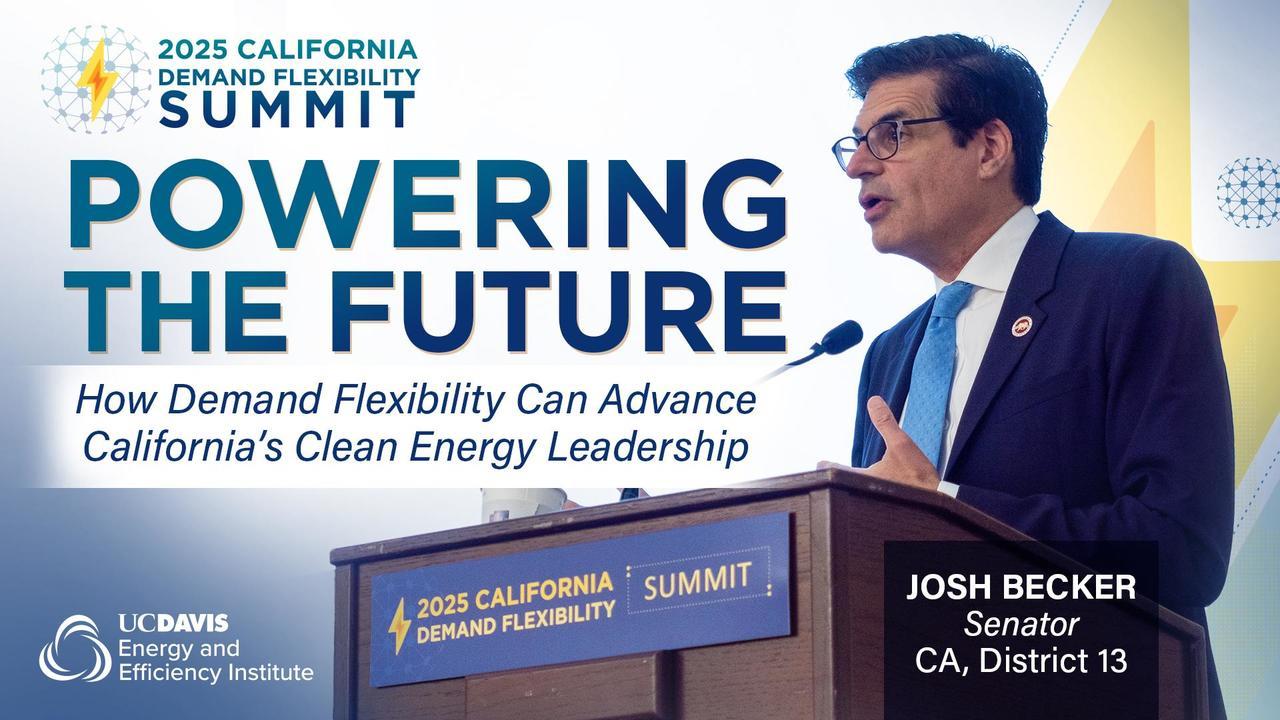Demand Flexibility Summit Draws Hundreds to UC Davis
On May 22, UC Davis hosted the 2025 California Demand Flexibility Summit, bringing together more than 400 participants from across sectors, including utilities, government agencies, academic institutions, and private energy companies. Attendees engaged in a full day of insight and discussion on how demand-side strategies can support a cleaner, more reliable, and more affordable grid.
The event opened with a keynote address from California State Senator Josh Becker, Chair of the Senate Energy Committee, who emphasized the opportunity for demand flexibility to accelerate climate progress, manage costs, and unlock economic growth. His remarks set the tone for a day focused on practical solutions and coordinated action.
Throughout the day, regulators, researchers, utilities, industry leaders and advocates explore topics such as dynamic pricing, customer engagement, load-shifting technologies, equitable access, and real-time data infrastructure.
A recording of Senator Becker’s keynote address is now available, with additional event highlights and session videos to be released soon.
New Research Highlights Role of EV Battery Recycling in Securing Lithium Supply
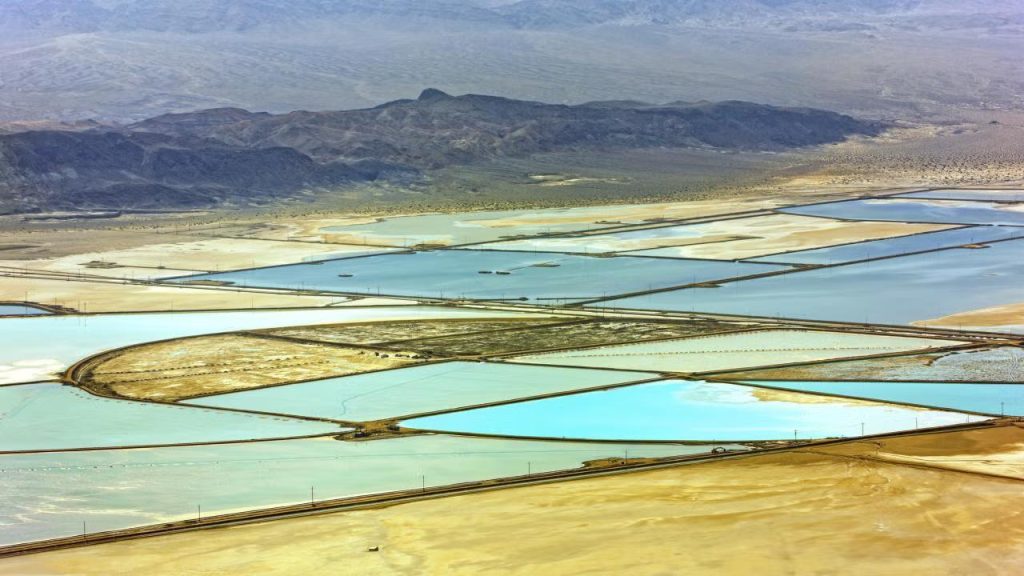
A new study led by ITS Associate Director Alissa Kendall explores how recycled lithium from end-of-life electric vehicle batteries can play a significant role in meeting the growing demand for this critical resource. Published in Nature Sustainability, the research emphasizes the importance of building out battery recycling infrastructure alongside the continued growth of the EV market.
The analysis finds that by 2040, recycled materials from retired EV batteries could supply up to 60% of lithium, 53% of cobalt, and 57% of nickel needed for new electric vehicle batteries in the United States. The findings underscore how policy support and investment in collection and recycling systems can help reduce the need for new mining while strengthening domestic supply chains.
CLTC Evaluates Power-over-Ethernet Microgrid Systems for Buildings
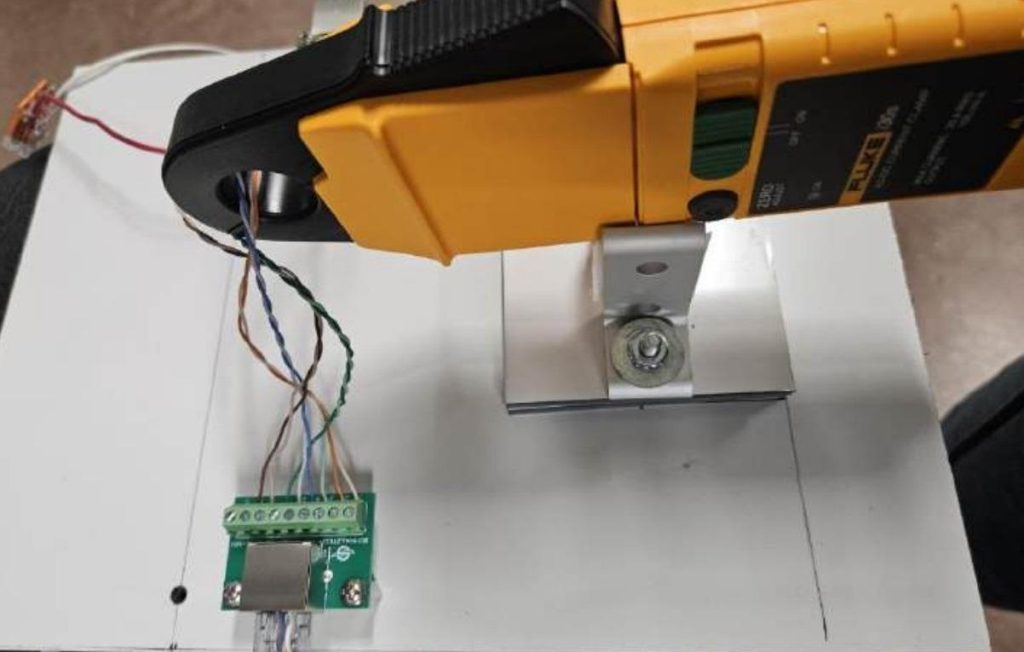
CLTC recently completed a study of Power-over-Ethernet (PoE) microgrid systems, examining their potential to simplify building power infrastructure while integrating solar, storage, lighting, and controls.
Led by CLTC Engineering Director Keith Graeber and engineer Andrew Harper, the lab-scale evaluation assessed PoE-enabled lighting and device systems under real-world load scenarios. Results showed that centralized PoE architectures, those using a single switch, achieved the highest energy efficiency, outperforming decentralized designs. The study also compared PoE-powered devices such as LED drivers, security cameras, and access controls to traditional AC-powered equivalents, finding that while AC systems often had lower overhead losses, PoE offers a flexible alternative for low-energy buildings and retrofits.
In addition to system performance, the team conducted cybersecurity testing, revealing gaps in compliance with standards, such as California’s SB 327 and the international UL 2900. The findings highlight the importance of clear manufacturer guidance and stronger safeguards for connected building technologies.
Helping Birds and Floating Solar Energy Coexist
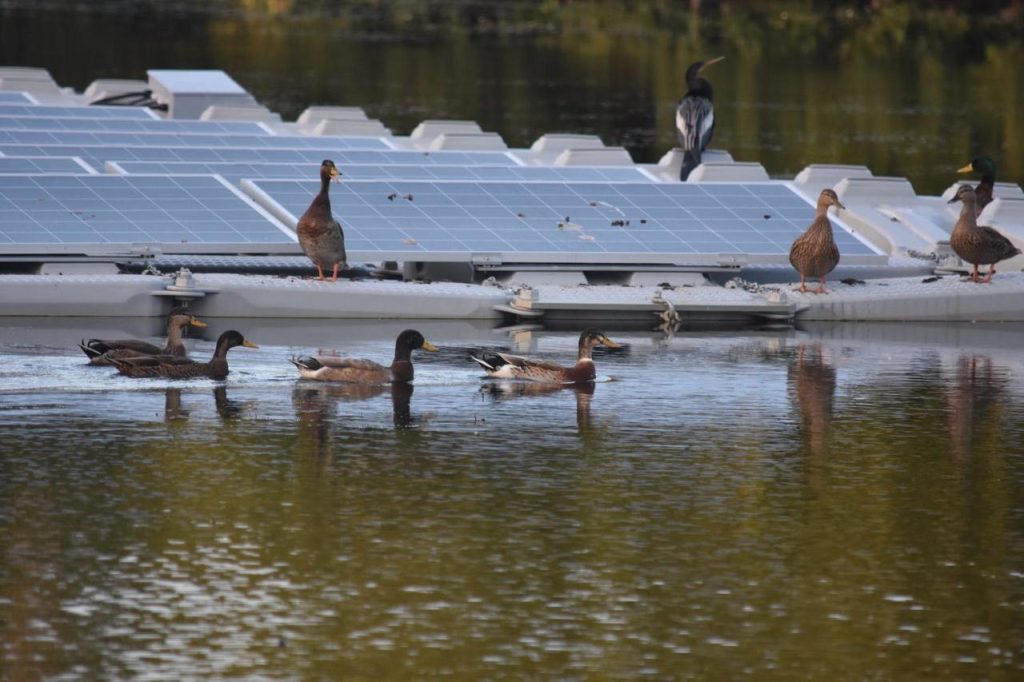
A new study from the Wild Energy Center explores how floating solar energy systems, known as “floatovoltaics,” can coexist with waterbirds that rely on the same aquatic habitats. As these renewable energy installations expand across reservoirs, irrigation ponds, and wastewater facilities, researchers are investigating their potential impacts on bird species that nest, forage, and rest in these environments. The study, published in Nature Water, outlines key considerations for designing floating solar projects that support both clean energy goals and biodiversity conservation.
Led by Wild Energy Director Rebecca Hernandez and postdoctoral scholar Elliott Steele, the research team observed various bird behaviors around floating solar arrays, including herons perching on panels and cormorants competing for space. The findings suggest that, with thoughtful design and monitoring, floating solar projects can minimize negative effects on wildlife and even offer ecological benefits. This work underscores the importance of integrating ecological insights into renewable energy development to ensure sustainable outcomes for both energy production and wildlife.
Architecture Students Explore Sustainable Design at EEI Smart Home
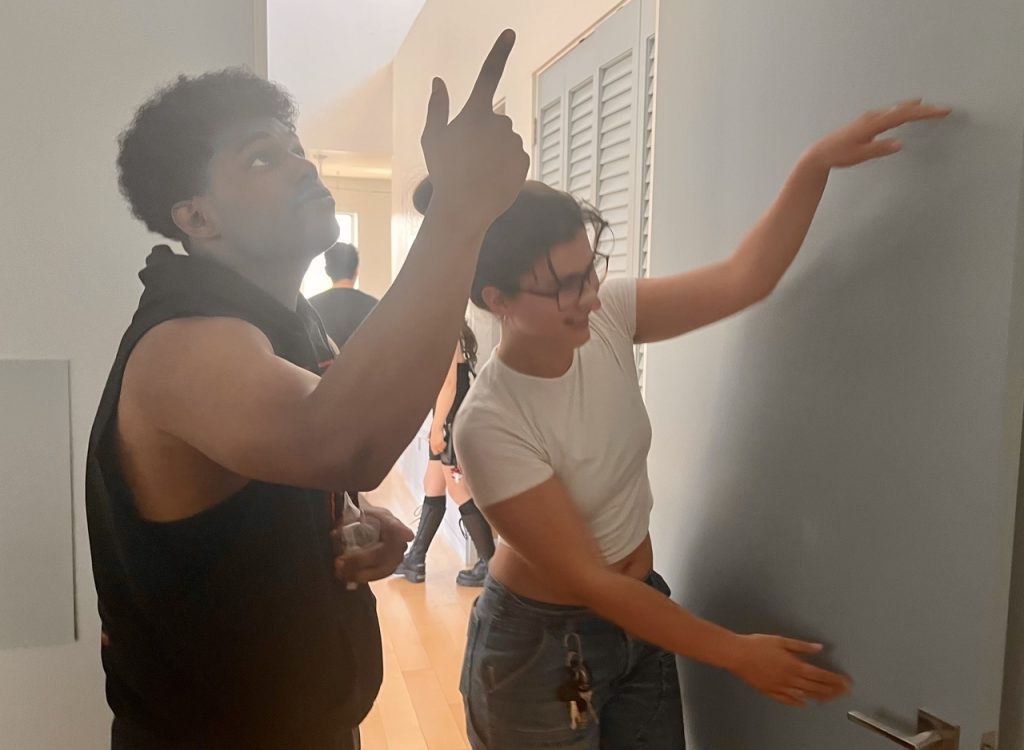
The EEI Smart Home recently welcomed a group of UC Davis undergraduate architecture students studying sustainable housing design. Led by Professor David de la Peña, the students toured the home to explore how passive strategies like natural ventilation, thermal mass, and solar orientation can be integrated with advanced energy and lighting systems. The visit offered students a hands-on look at the application of concepts they’re using in their own student housing prototypes.
Missed a Seminar? Watch It Now

If you couldn’t join us for our recent Demand Flex or Energy Justice Seminar Series events, you can now watch it online! Catch up on this and other recent seminars anytime!

